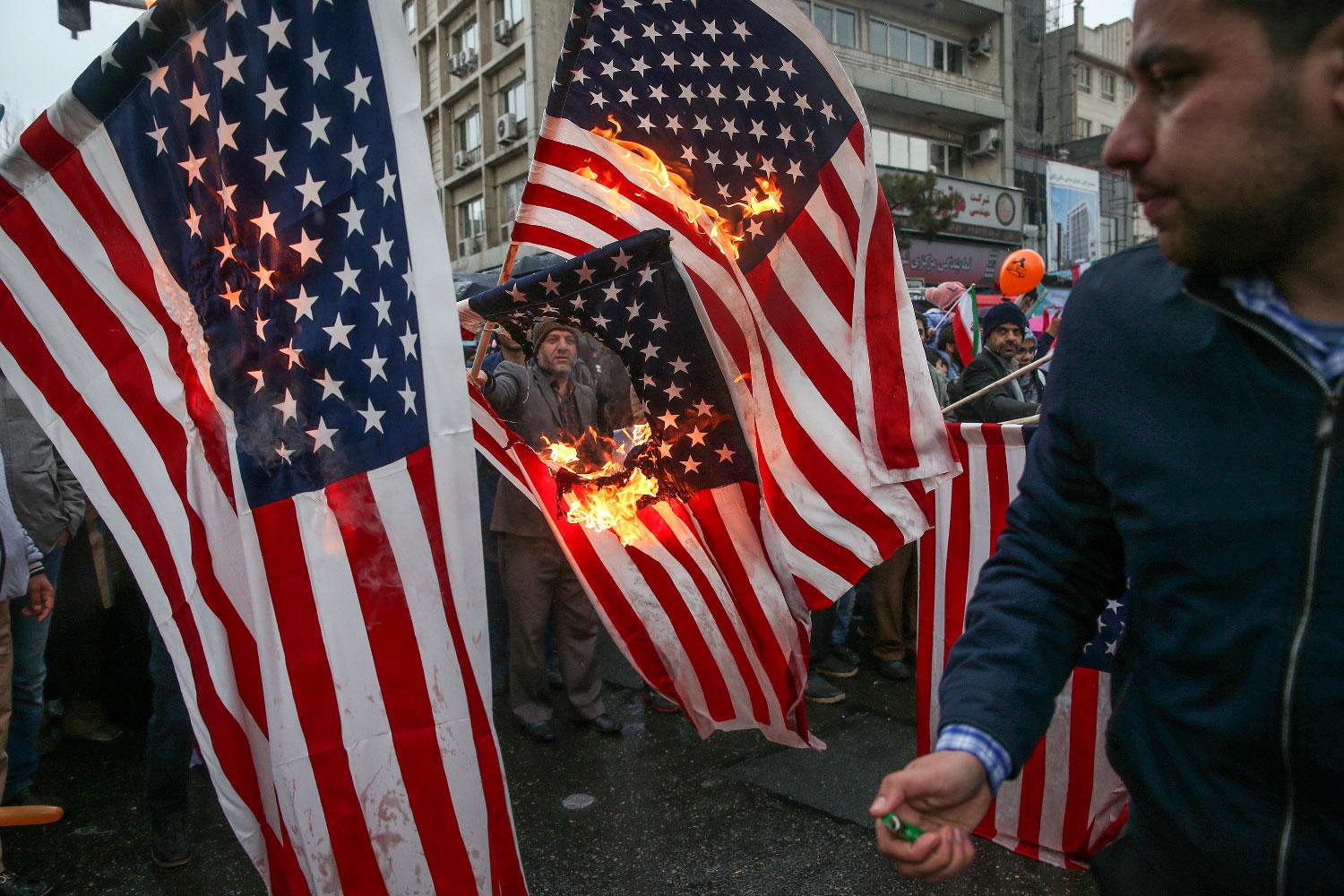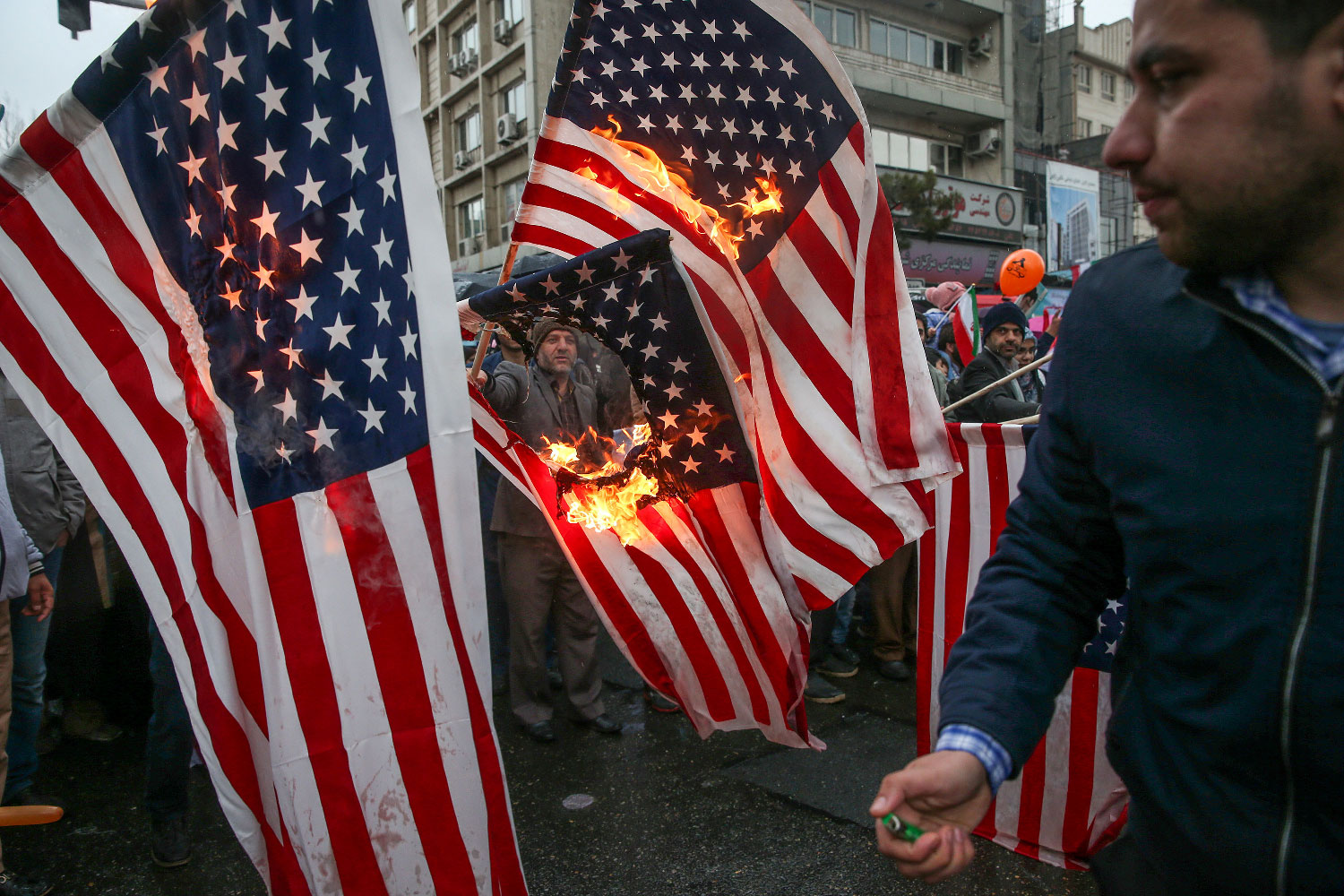Iran says talks with US can only 'harm'
TEHRAN - Iran's supreme leader said Wednesday that any negotiations with the US "will bring nothing but material and spiritual harm" in remarks just ahead of an American-led meeting in Warsaw that's expected to largely focus on the Islamic Republic.
Meanwhile, Iran's foreign minister said the two-day conference on Mideast security being co-hosted by Washington was "dead on arrival".
"It is another attempt by the United States to pursue an obsession with Iran that is not well-founded," Mohammad Javad Zarif told a Tehran news conference.
"The Warsaw conference, I believe, is dead on arrival."
Zarif said not even Washington had any interest in the conference as a forum for an exchange of views among the 60 participating countries.
"I think the fact that they are not aiming to issue any agreed text but rather are just attempting to use their own statement on behalf of everybody else shows they don't have any respect for it themselves," he said.
"You usually don't bring 60 countries and states together in order to speak for them. That indicates to you that they don't believe they have anything to gain from this meeting."
The Warsaw summit, which started Wednesday, was initially pegged to focus entirely on Iran. However, the US subsequently made it about the broader Middle East, to boost participation.
Much of the schedule for the conference remains vague amid deep divisions over policy towards the region, where Washington has adopted the deep hostility towards Iran of its allies Israel and Saudi Arabia.
Washington will be represented by both Vice President Mike Pence and Secretary of State Mike Pompeo, but major European allies are sending low-profile delegations amid unease over President Donald Trump's strident calls to strangle Iran's economy.
The main session will take place on Thursday when Pence, Pompeo and Israeli Prime Minister Benjamin Netanyahu are all scheduled to address the conference.
Netanyahu, who has vowed to keep striking Iranian forces until they leave war-torn Syria and has not ruled out a military strike to destroy Iran's remaining nuclear facilities, is likely to deliver a fiery address.
But outside of Israel, Iran's Arab rivals and the Trump administration, nearly all countries still back an accord negotiated under previous US president Barack Obama under which Iran agreed to accept tight limits to its nuclear activities in return for the easing of crippling economic sanctions.
Ramping up
Tensions ramped up between the United States and Iran after President Donald Trump withdrew from the multilateral nuclear deal last year and reimposed sanctions.
The US sanctions are putting unprecedented pressure on Iran, Supreme Leader Ayatollah Ali Khamenei said last month.
Tehran has now turned to the remaining signatories, particularly the European powers - France, Germany and Britain - to salvage the deal.
"With regard to America, no problem can be resolved and negotiations with it have nothing but material and spiritual harm," Khamenei wrote on his official website.
The comments were part of a seven-page statement read out word-for-word on Iranian state television and heavily promoted in the run-up to its release.
They also come two days after Iran marked the 40th anniversary of its 1979 Islamic Revolution amid heightened tensions between Tehran and Washington.
The supreme leader went on to describe any negotiations as an "unforgiveable mistake." He also said negotiations would be like "going on your knees before the enemy and kissing the claws of the wolf."
"Today, the Iranian people see some European countries as cunning and untrustworthy along with the criminal America. The government of the Islamic Republic must carefully preserve its boundaries with them."
"Iran must not retreat a single step from national and revolutionary values."
Khamenei pointed to sanctions as a big external challenge for the country and added, in an apparent jab at pragmatist President Hassan Rouhani, "weakness in management" was one of the biggest internal challenges.
France, Germany and Britain opened a new channel for non-dollar trade with Iran last month to avert US sanctions but top Iranian officials have said that Europe has not done enough to keep the deal intact.
Amid the new tensions, Iran's already-weakened economy has been further challenged. There have been sporadic protests in the country as well, incidents applauded by Trump amid Washington's maximalist approach to Tehran.
However, some have suggested Iranian leaders meet with Trump in a summit, much like North Korean leader Kim Jong-Un. Amir Mousavi, a former Iranian diplomat, has claimed that Trump sent a message to President Hassan Rouhani last week requesting direct talks. Mousavi, speaking with Lebanese television station al-Mayadeen, said Trump is ready to visit Tehran and had sent several messages through intermediaries in Oman.
There has been no acknowledgment of such a request from Washington.



